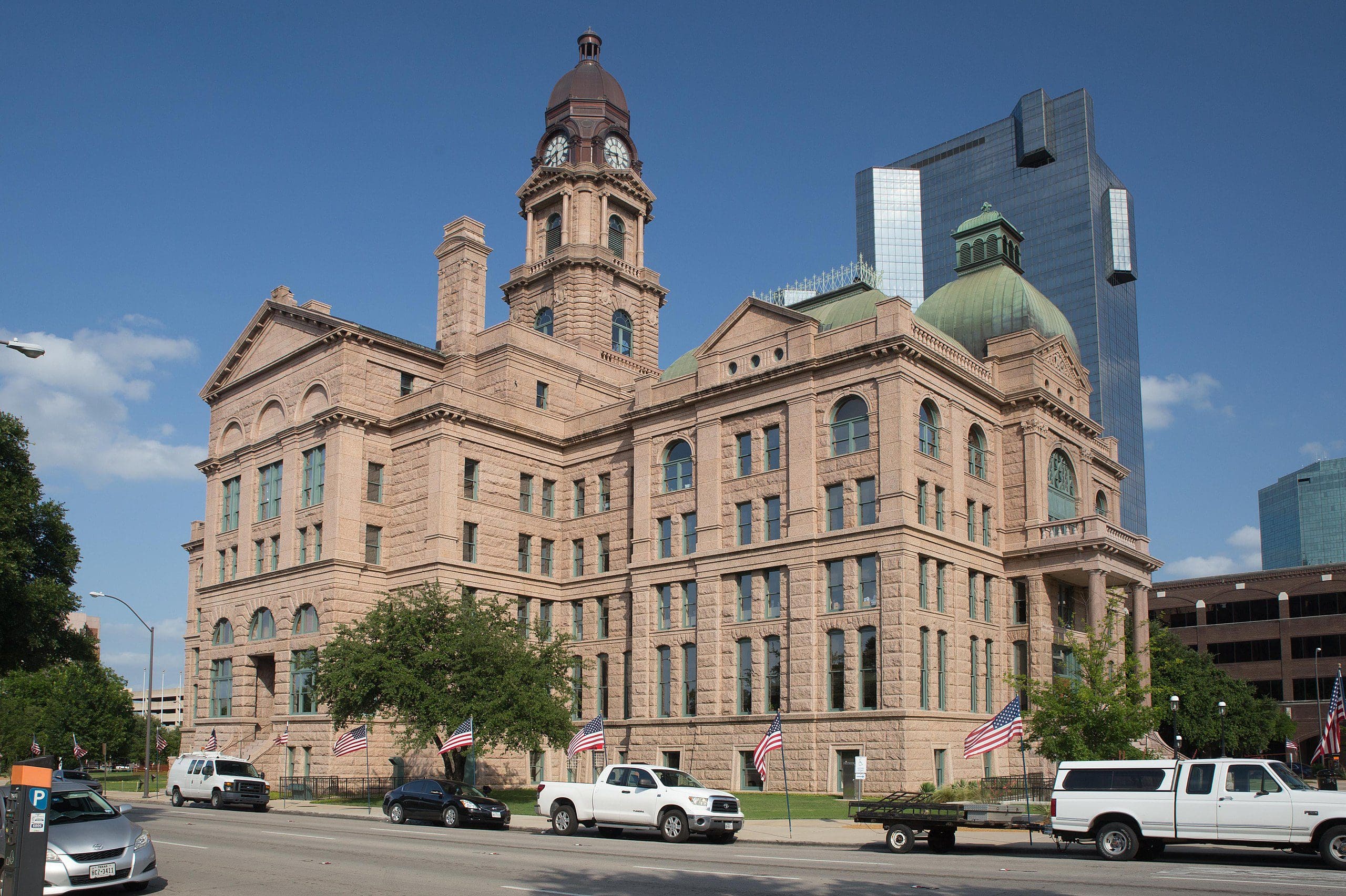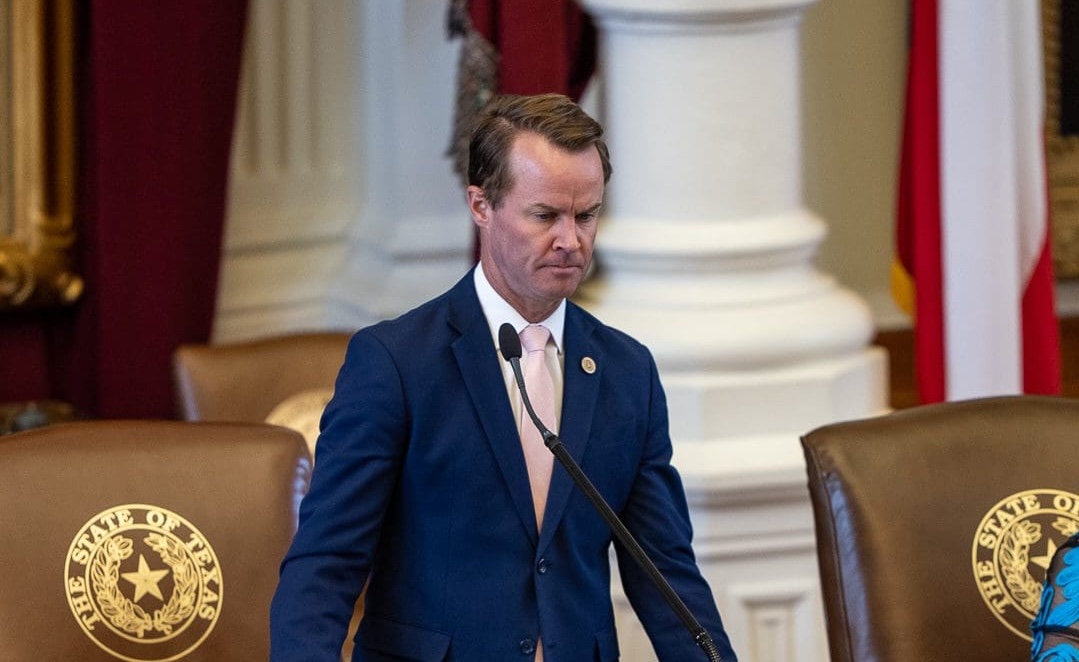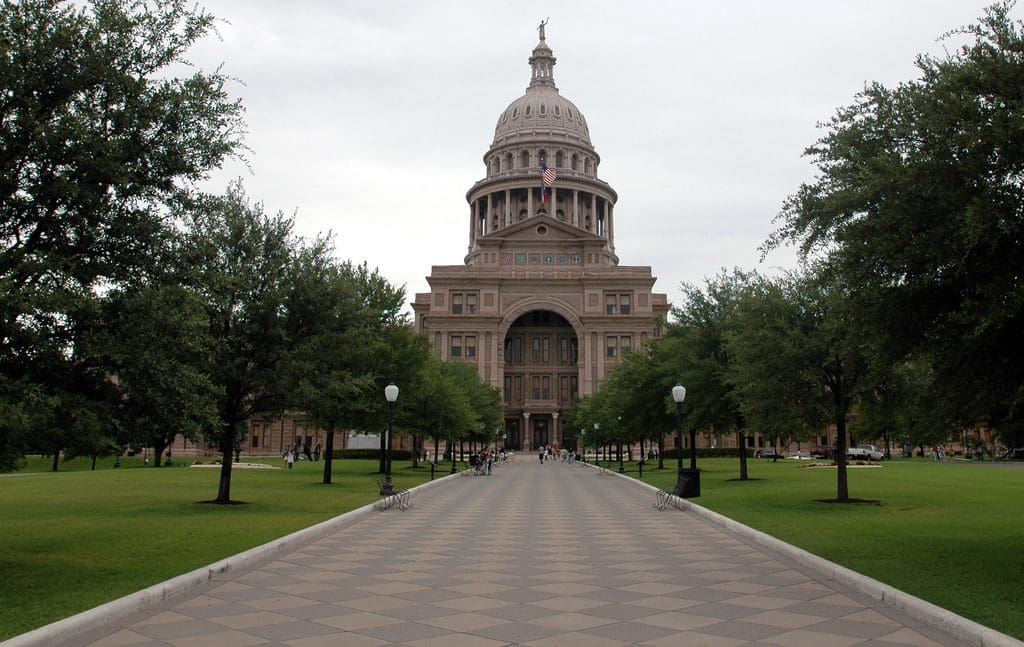While omnibus election integrity legislation is moving in the Texas House, not all Republican members appear to be on board.
House Bill 6, authored by State Rep. Briscoe Cain (R–Deer Park), was voted out of the House Elections Committee last week along partisan lines. The bill was then sent to the House Calendars Committee, where it will await being set on a calendar for the House of Representatives to consider.
A similar omnibus bill passed the Senate on April 1 along party lines, with 18 voting in favor and 13 voting against.
While being considered by the Senate, the House bill was being considered in the House Elections Committee. This provided a convenient time for major Texas-based corporations like American Airlines and Dell to publicly state their opposition to the bills without giving specifics.
Cain took to Twitter, lamenting that he never heard from the companies complaining about the bill between the time it was filed and when it was heard in his committee.
Your company employs 9 registered lobbyists. Many of them have contacted my office about other pieces of legislation, but none of them have ever discussed House Bill 6 with us. Wonder why… #txlege https://t.co/efKhSM0TgC
— 𝐁𝐫𝐢𝐬𝐜𝐨𝐞 𝐂𝐚𝐢𝐧 (@BriscoeCain) April 3, 2021
Leadership Legislative Priorities
Election integrity was named one of Gov. Greg Abbott‘s emergency legislative priorities during his State of the State address in early February. The Legislature could have taken up the issue for consideration in the first 60 days of the legislative session but chose not to.
Lt. Gov. Dan Patrick named it as one of his legislative priorities in late February and moved quicker than the House to get the bill through his chamber.
Phelan allowed it to be given a low bill number, therefore prioritizing the bill, but the bill has taken a slightly longer time to get through the legislative process in his chamber.
He was recently interviewed by KXAN News about his thoughts on the bill.
“The House had a very thorough hearing last week. It started at 8 a.m. and finished at, I believe, 5:30 the next morning, and constituents’ voices were heard on House Bill 6. My office worked very closely with Chairman Cain on his bill,” Phelan said. “For those who have concerns about suppression, when that bill gets to the House floor, we will have that debate, and it will be evident or it will not be evident where there is voter suppression. I don’t see suppression in House Bill 6, and I think the debate will bear that out.”
When asked how he felt about businesses coming out against the bill, he responded, “I am going to ask them to pull up House Bill 6 on their computer screen and point to me where in that bill they see voter suppression. I think they are pulling Texas into a national discussion where we don’t belong.”
“I am going to ask them respectfully because I do want their presence in the state of Texas. I do want them offering economic opportunity for my constituents and all Texans, but I want them to be very respectful of the process and go through the legislation line by line and show me where there is voter suppression in House Bill 6,” he continued.
The Republican Party of Texas named election integrity as its No. 1 legislative priority this cycle and is tracking a slew of bills related to election integrity as a result.
With the Support of Republican Leadership, There Are Still Republicans With Concerns
As of publication, there are still 20 Republican House members who are not signed on as co-authors to House Bill 6.
The list of those Republican lawmakers who have not yet signed on includes State Reps. Steve Allison (San Antonio), Ernest Bailes (Shepherd), Angie Chen Button (Garland), David Cook (Crowley), Tom Craddick (Midland), Drew Darby (San Angelo), John Frullo (Lubbock), Gary Gates (Rosenberg), Charlie Geren (Fort Worth), Dan Huberty (Humble), Todd Hunter (Corpus Christi), Kyle Kacal (College Station), Ken King (Canadian), John Kuempel (Seguin), Lyle Larson (San Antonio), Morgan Meyer (Dallas), Four Price (Amarillo), John Raney (Bryan), John Smithee (Amarillo), and Gary VanDeaver (New Boston).
In fact, a few Republican lawmakers, including Kacal and Larson, have publicly stated their concerns with the bill. Their comments have been echoed by former House Speaker Joe Straus, who previously took to Twitter, saying, “It’s bad for business and, more importantly, it’s bad for our citizens.”
What Does it All Mean?
As the 87th Legislative Session begins to wind down with just 49 days left, House Bill 6 will likely get calendared to be considered by the overall House of Representatives in the next few weeks.
The threshold for a bill to successfully pass the House of Representatives is that of 76 votes (or 50 percent plus one of quorum). With 67 Democrats in the House almost assuredly in opposition to the bill, they would theoretically need to convince just nine Republicans to side with them to potentially kill any consideration of the omnibus election integrity bills.
It is still unclear what—if any—reservation the thus far reluctant Republican lawmakers might have with the bill and what—if any—ramifications come from the major businesses coming out in opposition.





